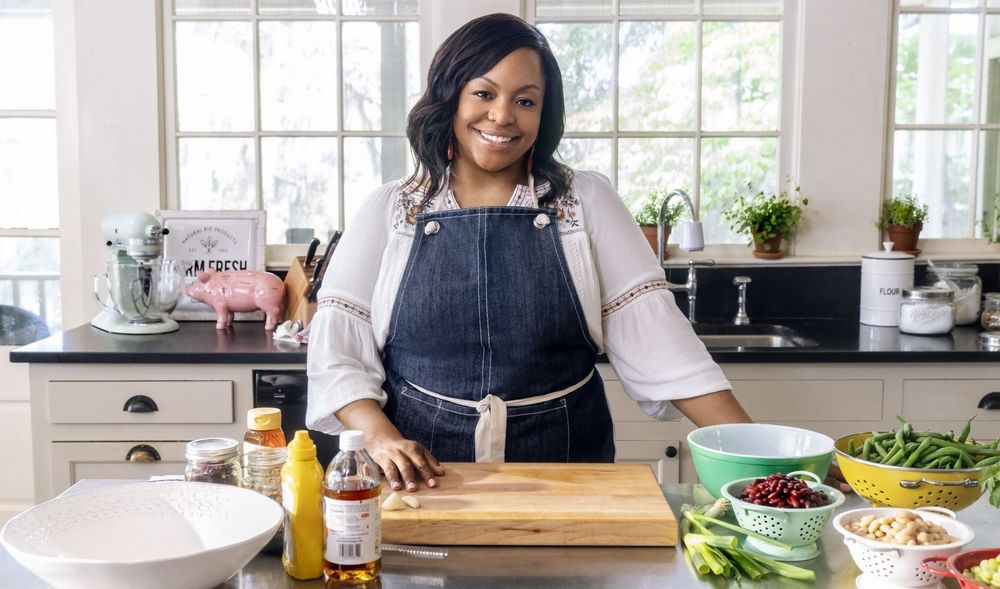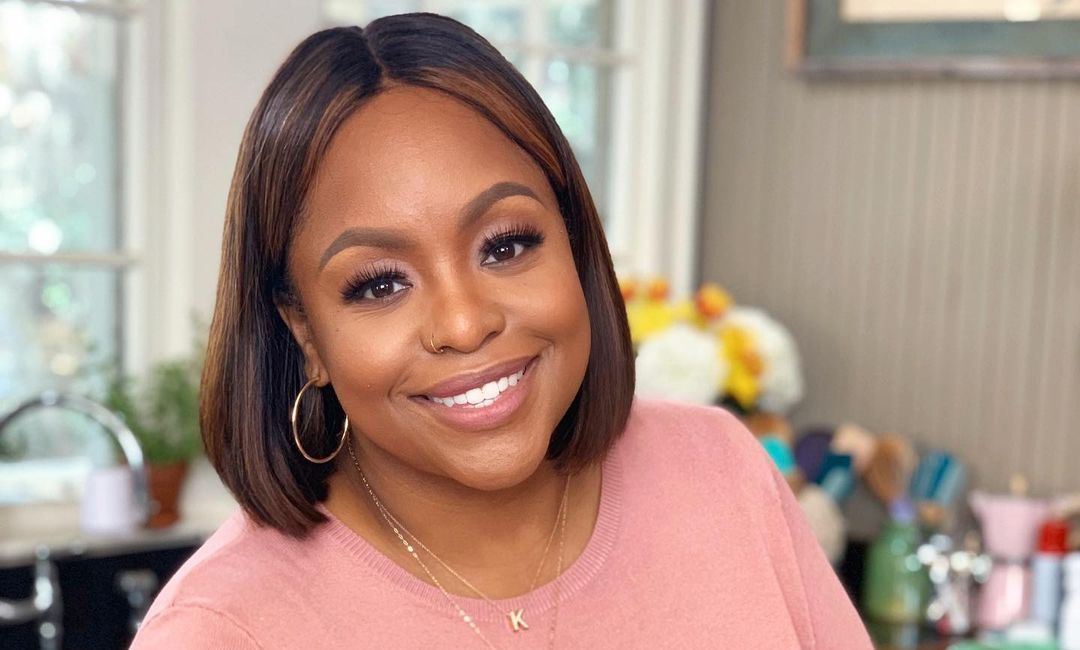Kardea Brown is the host of Food Network’s hit show Delicious Miss Brown. Before starring on her show, Brown appeared as a guest or judge on Beat Bobby Flay, Cooks vs. Cons, Family Food Showdown, Farmhouse Rules, and Chopped Junior.
Brown is from South Carolina, but her food is more about her African roots than her South Carolina upbringing. Kardea descends from the Gullah/Geechee community of South Carolina, a former slave community that held on to its traditions in the face of crippling adversity. Kardea’s cooking is, therefore, unlike anything else you will see on Food Network.
This piece will look at Kardea’s career switch and her unique upbringing.
Kardea quit her job at social services to give cooking on camera a shot

Kardea’s relationship with Food Network started after an ex-boyfriend sent a tape of her cooking to company executives. Out of hundreds of submissions, Food Network chose Kardea to film a pilot alongside Bobby Deen. The top-brass at the network loved her, but they felt like she needed to hone her cooking skills. “I remember going to the first meeting at the Food Network, and they said, ‘We love you. You’re great,” Brown told Cuisine Noir.
“But the word they used a lot was ‘you’re too green.’” Kardea heeded the advice, and a day later, she quit her job in social services. She sold everything she had and traveled back to South Carolina in search of culinary motivation. Brown eventually carved out a niche by sharing her unique culture with the world. She told Garden and Gun:
“But what could set me apart? Well, the food I cook is different. You can’t find it everywhere unless you come to Charleston to eat it, so why not take Charleston to other places? I said, ‘I’m going to go on the road, and I’m going to share my culture with people.’”
Brown had an unwavering belief in her ability, but some of her loved ones, most notably her grandmother Josephine, felt that she was making the wrong decision. However, her grandmother changed her mind when Brown got her show on Food Network. “She said, ‘I’m really proud of you,” Kardea told Garden and Gun. “I mean, words can’t explain how proud I am of you.”
Food Network kept tabs on Kardea until company executives felt that she was ready to star in her show. Kardea told Cuisine Noir that even then, there was no guarantee that Food Network would sign off on the series. She explained:
“I was told that there would be a 1% chance that the Food Network would actually say yes to me having my own series. It’s been four years of really, really not giving up and knowing in my heart that there was a bigger story and bigger purpose for my life.”
Kardea’s unique recipes descend from the African roots of her Gullah/Geechee community

As Brown traveled by train from New Jersey to Charleston, she thought about what would set her apart from her colleagues on television. Her mind settled on her proud Gullah/Geechee community in South Carolina. The community held on to most of its traditions during slavery and passed on unique aspects like recipes to future generations. She told Garden and Gun:
“I think the Gullah people laid the foundation for Southern cooking. Before farm-to-table was a fad, it was what Gullah people did, so I wanted to show that world that African American people don’t just fry chicken and eat collard greens swimming in meat. It’s very intentional on my part, to show a different part of the South.”
Kardea’s mom, Pat, learned how to cook from Kardea’s grandmother, and gradually passed on her skills to Brown. Josephine taught Kardea the basics of cooking, but Brown credits Pat for cultivating her love for cooking for entertainment. “She [Pat] always had big lavish birthday parties where she did all of the cooking, so I think that’s where I got the idea of cooking for entertainment, and cooking for friends and family,” Brown said.
Delicious Miss Brown is as much a cooking show as it is a history lesson. Kardea explores the past by featuring her family members on the show and talking about the origins of their meals. She told Southern Living that she wants people to know that there is a different part to Charleston than what is normally represented.
Kardea isn’t averse to talking about sensitive issues. In one of the episodes of her show, Kardea faced opposition for talking about slavery. “I started talking about slavery, and people said, ‘We don’t know if we can say this,’” she told Southern Living. “I was like, ‘Why not? It’s the truth!’ Sadly, it is 2020, and we are still not ready to have that conversation.”